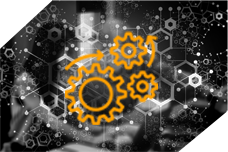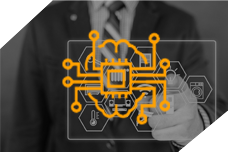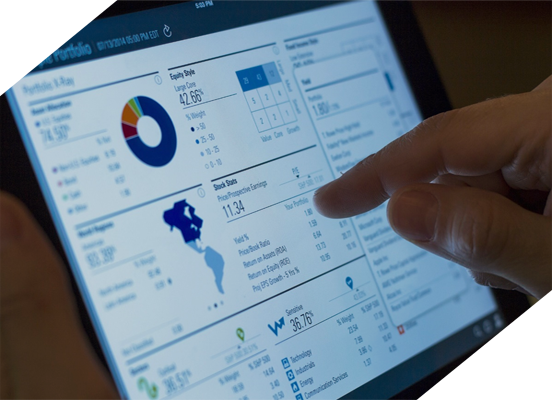Roads
It's not just about travel, it's about being part of the
change that allows us to connect
The imperative need for safe and sustainable mobility has prompted companies to include technological innovations and new developments in their service portfolio to achieve the goal of creating smart roads.
The digitization of the tracks,
a step towards
the future

Building Information Modeling (BIM). It allows the handling of large amounts of data and the generation of virtual replicas of the physical infrastructure in order to analyze its behavior and apply this knowledge to asset management.

Big data and Artificial Intelligence. For traffic control, flow forecasting and intelligent fleet management, providing real-time information on positioning, waiting times and schedules of the public transport network..:

Blockchain. Particularly useful in toll roads, allowing to automate payments, minimizing errors and with full traceability of each amount.

Artificial vision. Applied in the development of dynamic pricing solutions, vehicle occupant detection or the management and maintenance of control centers and operators on the road, improving safety and efficiency levels.
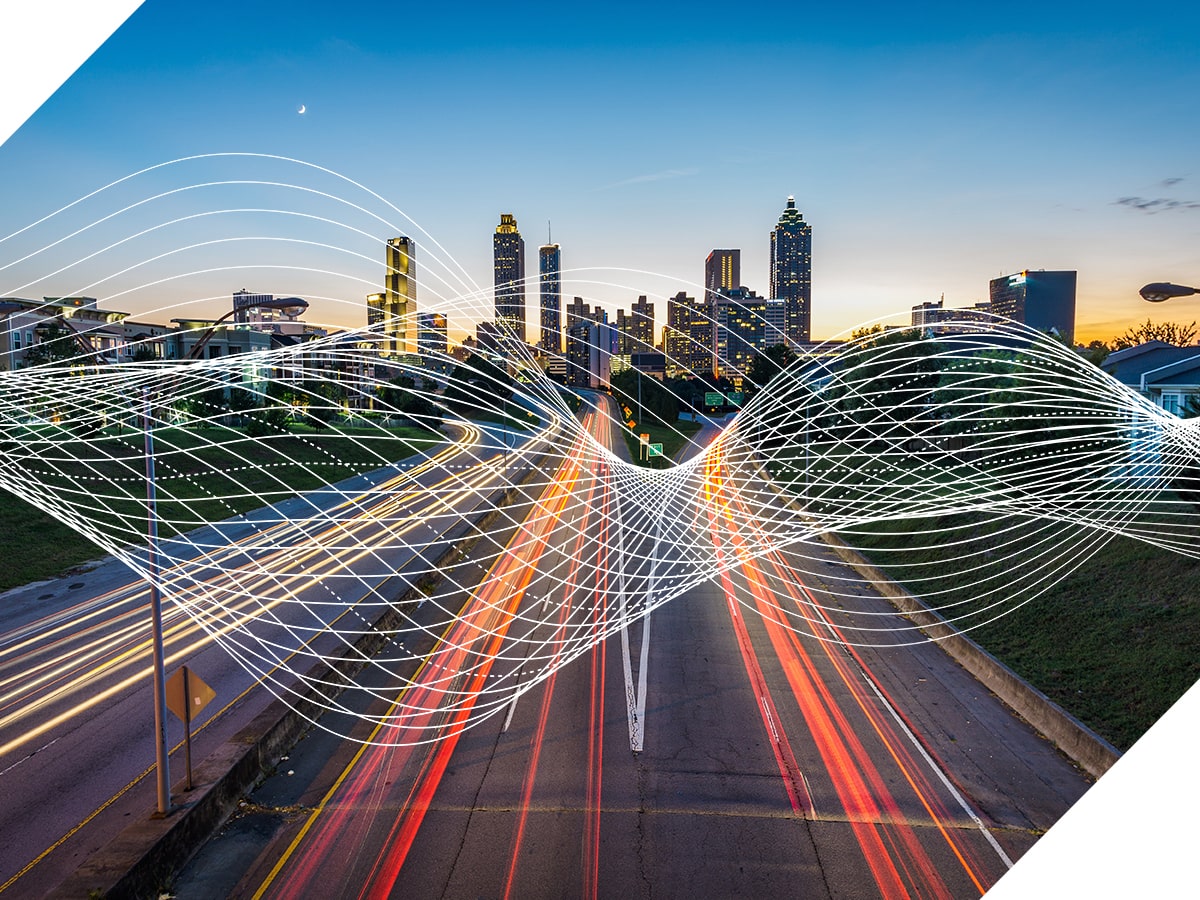
Distributed Acoustic/Vibration Detection (DAS/DVS). These systems detect vibrations and capture acoustic energy from the optical fiber allowing to detect and locate, for example, intrusion activities.

5G and edge computing. The deployment of 5G helps connected devices to be functional and efficient at any time. By transforming roads into intelligent highways, they will allow for increased safety and real-time direct communication with users. The progress of its implementation presents a future ever closer to the autonomous car.
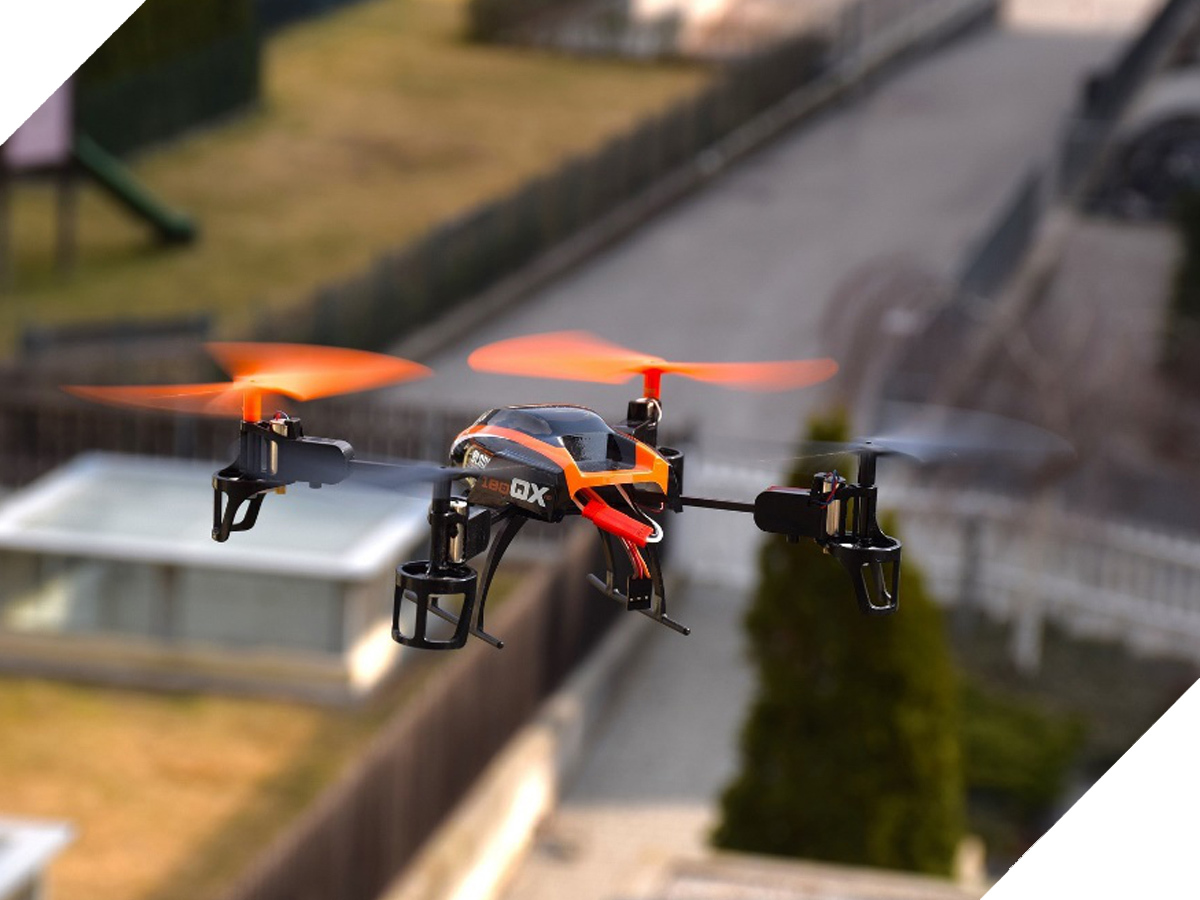
Drones. They help to analyze traffic conditions, determine causes of accidents, warn of non-compliance with regulations, road conditions and generate analytical data that can be transformed from frequency signals.
Investing in innovation
is to invest in security
The inclusion of these technologies in mobility and infrastructures contributes to reducing accidents and improving safety and security of travelers and infrastructures, making them more efficient and optimizing the use of resources. In addition, they also help to make transport management more efficient and less polluting, reducing the carbon footprint, promoting sustainable mobility policies and improving air quality by reducing associated emissions.
To afford the unstoppable growth in traffic, the constant technological advances in the automotive industry, while essential, are insufficient without road infrastructures that evolve at the same speed.The ability of vehicles to interact with the road infrastructure and with other vehicles can be substantially improved if the appropriate infrastructure is in place, and this is where the Internet of Things and the development of 5G networks are crucial. Thanks to intercommunication between vehicles and between vehicles and infrastructure, traffic management systems will have a broader database to manage traffic more effectively.
The road maintenance industry is constantly striving to improve effectiveness and efficiency, developing R&D activities in projects that are integrated into roads to provide a better service to road users. It is essential to optimize maintenance activities and thus reduce the costs of this work, which translates into an increase in competitiveness and market share.
Innovation is undoubtedly a driver of social change that must necessarily be applied to road maintenance and upkeep in order to improve road safety and mobility. Technological development is key to maintaining a high standard of infrastructure quality. In the specific case of roads, it makes it possible to extend their useful life and adapt them to regulatory requirements.
Maintenance
The first step in road maintenance and operation tasks is to properly inventory the assets that make up the road infrastructure, then diagnose the magnitude of the deterioration suffered and, finally, define the performance objectives to be achieved with an action plan adapted to the available resources.
The digitization of activities and the inclusion of scanning technologies, which make it possible to move from physical models to virtual models with high levels of resolution, facilitate and speed up inventory tasks.
The automation of auscultation and inspection tasks is generating cost reductions, either by increased productivity or by the simultaneous use of large data sets that compensate for the precision of individual measurements with a greater number of measurements.
Access to updated information is the basis for the design of road infrastructure maintenance/improvement actions and allows prioritizing the place and timing of actions according to the economic resources available. The demands linked to the circular economy require enhancing the minimization of environmental impacts, seeking to provide greater durability and efficiency to resources.
Action Environments
Technology
modernization
strategy

Five business factors to guide technology modernization projects.
With the advent of technologies, information, and communication, organizations, both public and private, are facing a new model of competition and management, Youtec focuses on the search for new sources to add with our experience the added value to meet the criteria of effectiveness and efficiency required by customers.
Youtec focused technologies modernization to the possibility of reducing internal costs and their output, obtain competitive advantages using innovation, support in order to protect the risks that may arise and the technologies architecture.
Digital
transformation

Digital transformation is the integration of digital technology in all areas of a company, fundamentally changing the way it operates and provides value to its customers. Youtec offers a follow-up in the digital transformation of your company, focused on your business, training of human talent, and measurement of results.
Youtec collaborates in the development of a digital transformation plan in its three fundamental stages: stage, Action stage, and follow-up of the actions.
The evolution towards digital is based on four pillars:
technology, customer experience, corporate culture, and business objectives.
Digital transformation is a process that requires an open attitude to charge, emotional intelligence, and the ability to adapt to a changing environment, to approach such transformation effectively, it is necessary to pay attention to three key points that youtec recommends for those who want to transform their company:

Youtec provides its support services in project management, with the objective of obtaining great advantages in the process of digital transformation for businesses.
- Promote the culture of innovation in the company
- Transform processes in organizations more efficiently
- Contributes to fostering collaborative work and internal communication
- Provide a rapid response capacity in a changing environment
- Offering new business opportunities through data analysis
- Improve the customer’s experience and relationship with the brand
- Analyze weaknesses and strengths in relation to the company
- Decentralization of work and continuous training by being able to work from anywhere, increasing the mobility of the team
Data
interoperability

Youtec collaborates with its clients in the management of technological projects and their follow-up allowing the integration of the main values of open data, highlighting its potential for interoperability
- It allows access to information for work teams.
- It provides the necessary capacity for the construction of large or complex systems
- Encourages creativity and potential innovation.
This interoperability is key to achieving the main practical benefits implied by the open data concept:
- Improved ability to combine different data sets.
- Ability to create new data sets.
- Option develop more and better products and services in different fields.
- Increase the efficiency of work teams
- Encourage the use of data to enhance creativity and innovation
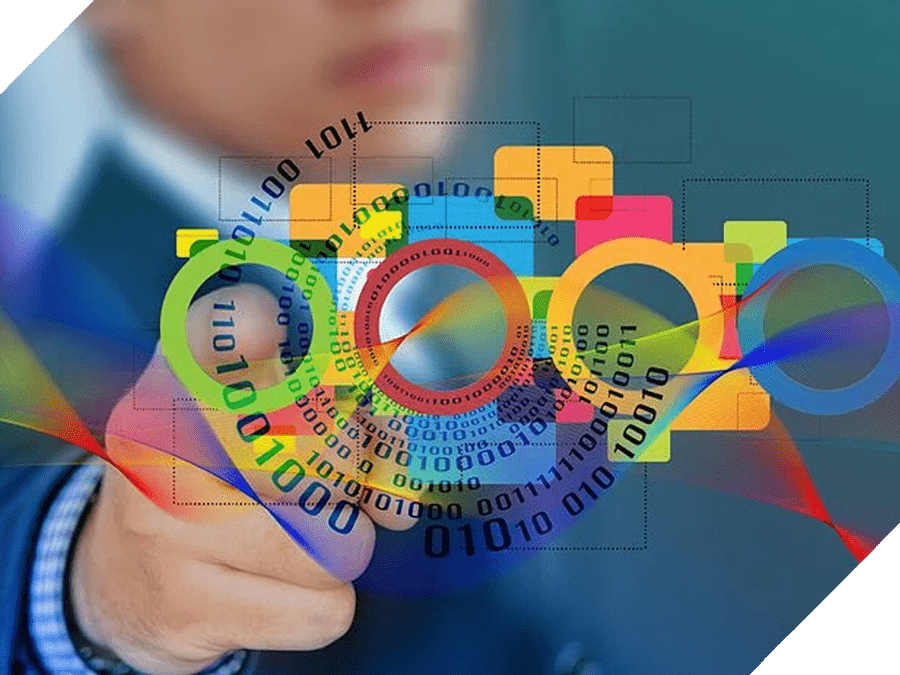
Transformation
of human
capital
The transformation that businesses are undergoing force human capital to develope new skills that allow organizations to adapt to new needs.
For Youtec elevating the company`s capabilities in the implementation of new work roles and continuously adapting to change in a highly competitive enviroment is considered fundamental fot the continuous advancement of our clients.
As a consequence of the above, youtec supports and collaborates in the three fundamentals points within the human capital transformation strategy
- Retraining employees according to the type, sector, and demand of the environment making use of technology and driving imperatives to optimize resources.
- Redirect human capital and resources to mobile work by optimizing and automating HR-related activities.
- Train resources on the go, according to the demands or needs that arise
Process
control
and automation

Automatization is using technologies for the implementation of processes and procedures with the objective of reducing execution times through the use of integrated solutions.
- Study of current processes and procedures.
- Redefinition of processes based on process time reduction and information convergence
- Definition of the tactical plan for automation
- Follow-up to achieve the plan
Advantages of process automation
- Allows you to gain a competitive advantage by promoting operational reliability
- Reduce operating costs and increases the speed of implementation of support and development tasks
- Promotes the uninterrupted work of the systems
- Provides more valuable analysis and streamlines application deployment through automated job execution
- Increases efficiency and productivity by eliminating the execution of manual commands, subject to human error.
- Enables visibility and control of all workflows, facilitating process status reporting.
- Expands process management and control capabilities by supporting both physical and cloud-hosted distribution models.

Contact with Youtec
Our team of consultants is at your disposal to advise you on the path to digital transformation.
Send us a message
Our priority is to help people, companies and public entities to accelerate the transformation and adapt to a new digital environment

